Caravan 26: Science for Food Security

Authors:
This issue of Caravan illustrates this continuum approach. It describes some of ICARDA’s strategic research — the use of new tools such as GIS, molecular markers and thermographic imaging, and new
research methods in biodiversity conservation and plant breeding. It also describes applied research on water management, conservation agriculture and cropping systems. It discusses the challenges facing
water policy makers, and summarizes one of the many impact assessments conducted jointly by ICARDA and its partners. And it shows how partnerships can help rebuild agricultural systems in
post-conflict situations like Afghanistan.
Clearly, research by ICARDA and its partners has had huge impacts. But research alone is not enough. It must be supported by extension and training programs, enabling policies and effective institutions. If we are to ensure food security in the future, we must develop new technologies, use existing technologies more effectively, and strengthen national R&D capacity. Most importantly, we must build partnerships between researchers in different countries and regions, and between researchers, development practitioners, farmers and policy makers. ICARDA is well placed to create and support these partnerships. We work with farmers, national research and extension systems, advanced research
institutes, NGOs, the private sector and policy makers in more than 50 countries. These partnerships have made vital contributions to food security in a number of developing countries.
